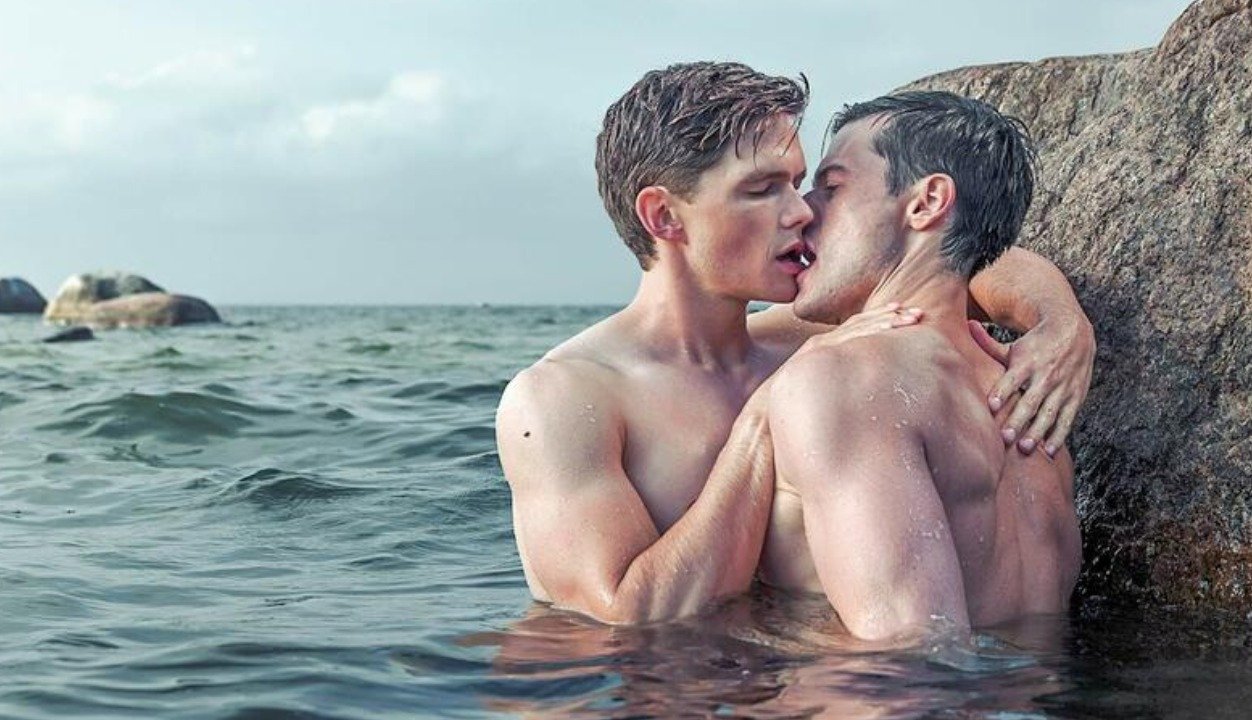Firebird
Directed by Peeter Rebane, Firebird (2021) brings to life the late Sergey Fetisov’s memoir titled ‘The Story of Roman’. Set in 1970s Estonia during the Soviet occupation of the Cold War, we watch two soldiers fall in love, and fall apart.
This story is as much about love, as it is about war. Serge Serebrennikov, portrayed by British actor Tom Prior, is nearing the end of his military conscription. While he displays great promise in this field, even politely declining the offer of an ongoing position, it is clear he cannot wait to leave to pursue less repressive engagements. In his final weeks, a handsome pilot by the name of Roman Matvejev, portrayed by Ukranian actor Oleg Zagorodnii, joins the station. His charm quickly catches the eye of both Serge and his good friend Louisa (Diana Pozharskaya), who works as the secretary to the base commander.
The film follows Serge, Roman and Louisa's stories of friendship, romance and ultimately heartbreak, as three is always a crowd. As we follow Serge and Roman both together and apart we get to see Serge somewhat freed from a regiment of oppression, with Roman continuing to struggle in this system. It isn’t all devastation and heartbreak though, we get joyous moments too. Like when Roman takes Serge to see the rehearsal of Igor Stravinsky’s ballet Firebird, the namesake of this film. It’s these simple moments, away from their roles and expectations, that allow the two to let their guards down and open up to one another. Relationships between two men were considered illegal at this time, so Serge and Roman had to keep their connection secret, even from Louisa. If the threat of the 5 year hard labour jail term weren’t enough, the clear tones of toxic masculinity and generalised homophobia in this military system instilled visible fear into our protagonists, with each being a victim of both queer shame and war.
The personification of these themes in human form is Estonian actor Margus Prangel’s character, a particularly suspicious Major Zverev. The Major is hell bent on finding any evidence he could to expose the two and seems to always show up at all the wrong times, with Prangel’s performance injecting pure anxiety into his scenes. The strength and conviction that Diana Pozharskaya portrays as Louisa does not allow the audience to simply pity her for her situation, but rather instils anger and frustration. The story could have greatly benefitted however from further exploration of this character and her dynamics with both Sergey and Roman.
Even with his natural British accent occasionally slipping through, Tom Prior's performance as Sergey Serebrennikov carried the film. The audience really is drawn into his emotions throughout this story, feeling the shy smile after a stolen kiss or the betrayal of a broken promise. He brings conviction to the relationship between Sergey and Roman that could have felt otherwise stilted. Prior not only plays the film protagonist but is also credited for his writing and production of the film next to director Peeter Rebane and producer Brigita Rozenbrika.
The film's representation of this story feels as though it was watered down to pander to a wider audience. There are some questionable directorial decisions throughout, particularly in the use of cut away scenes during Sergey and Roman’s more intimate moments. Both in the use of English language, rather than Russian, and the fairly straight laced depiction of queer love, the queerness of the story is lost. In the scripting and pace more could have been done to separate this film from those we’ve seen before surrounding forbidden love in an ultra-masc setting.
The cinematography by Mait Mäekivi is a saving grace though, bringing beauty to the dark landscape of this story. With consistency in the colour palettes used throughout the film and the spanning shots of snowy forest and warm seas, the depiction of this story is at least aesthetically pleasing. The real emotion of this film comes only from the fact it was based on these events, rather than the somewhat disappointing depiction of them. And as idyllic as it would be to say it is a story of the past, the shame and repressive regimes are as prevalent as ever in countries all over the world.


